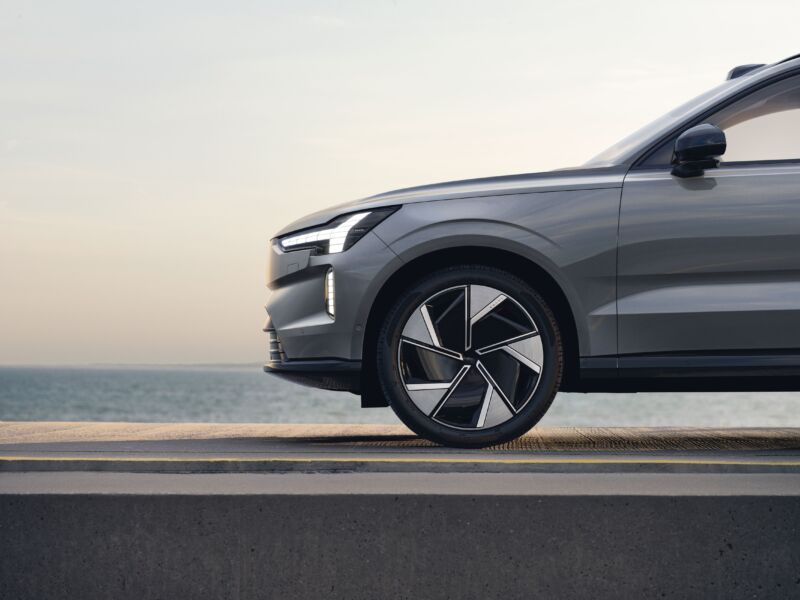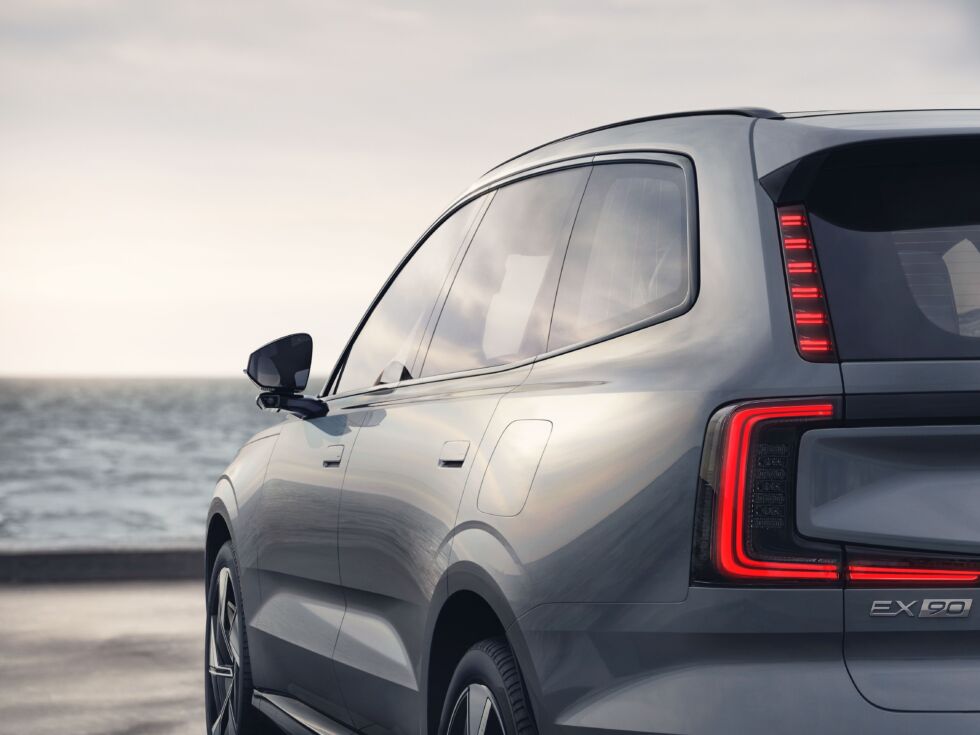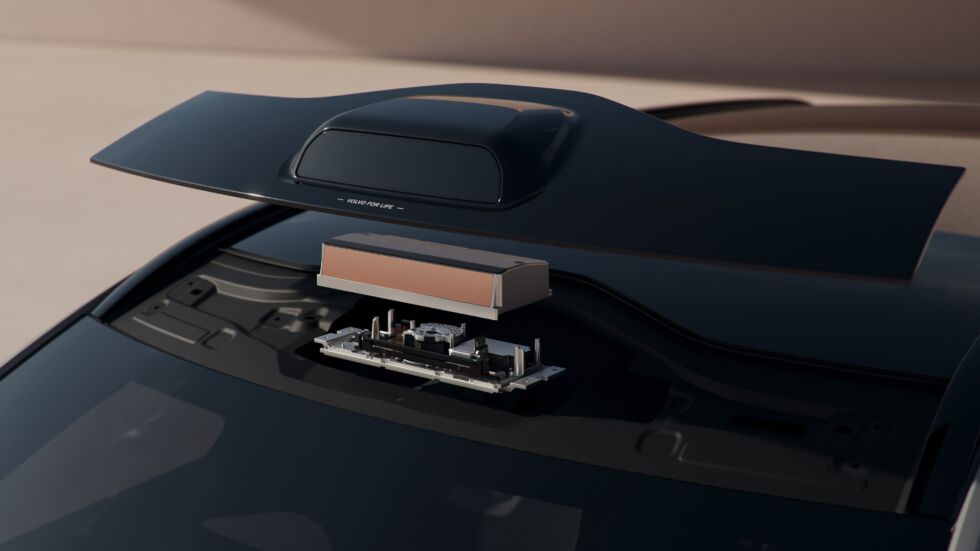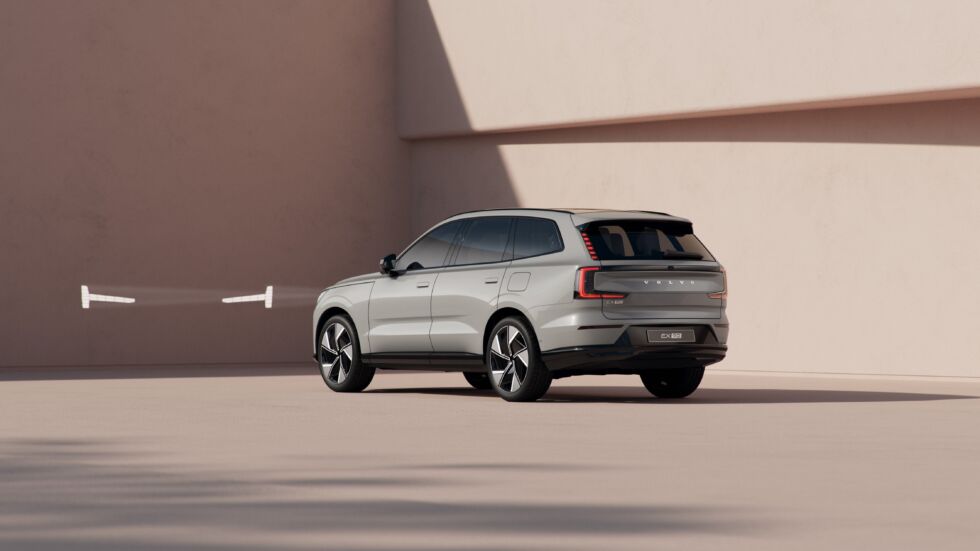
On Wednesday, Volvo gathered media together in Sweden to reveal a new car. It’s called the EX90, and it’s a battery-electric SUV that goes on sale in early 2024 alongside the conventionally powered XC90 SUV as the brand’s new flagship.
“The Volvo EX90 is a statement for where we are, and where we are going. It’s fully electric with a range of up to 300 miles on a single charge, designed to further raise our safety standards, the first Volvo car to be truly defined by its software and part of a wider ecosystem, connecting to your home and your other devices. The Volvo EX90 is the start of something new for Volvo Cars in many ways,” said Volvo CEO Jim Rowan.

Immediately recognizable as a Volvo SUV thanks to its distinctive silhouette and light signatures, the EX90 uses the same new SPA2 electric vehicle architecture as the forthcoming Polestar 3 SUV, which like the EX90 will be built at Volvo’s factory in Charleston, South Carolina.
So it’s no surprise that the specs are quite similar to the Polestar 3; a 111 kWh battery pack and a pair of electric motors—one for each axle—with a combined output of 496 hp (370 kW) and 671 lb-ft (910 Nm). Volvo says that a fast charge will take 30 minutes to bring the battery from 10–80 percent state of charge and expects a range of up to 300 miles (483 km). It will also feature bidirectional charging or vehicle-to-load capabilities.

Volvo’s also fitting lidar to the EX90, in this case a forward-looking unit from Luminar mounted above the windshield. In time Volvo may endow EX90s with autonomous driving software, but for now the lidar sensor integrates into the EX90’s suite of advanced safety systems to detect objects in the EV’s path.
As with the Polestar, the EX90 uses Nvidia’s Drive AI platform to fuse all the sensor data together, and the Android Automotive infotainment system is powered by Qualcomm’s new Snapdragon Cockpit platform.

Volvo says that the EX90 “will be available well-equipped at under $80,000” in the US. It’s accepting $500 preorders now, with the deliveries planned for early 2024.
https://arstechnica.com/?p=1896341

